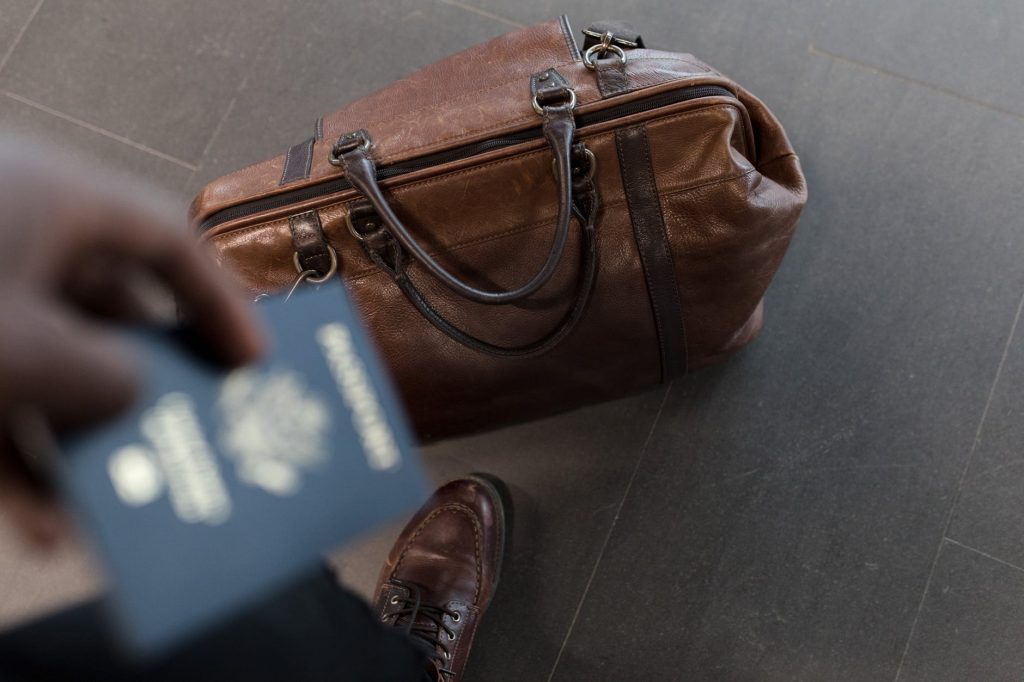Rules for entering Germany during Christmas and New Year: Many people might be travelling into and out of Germany this season and so its important to take note of travel bans, test or quarantine restrictions this festive season.

Entry bans
There are some restrictions set in Germany when it comes to entering teh country from countries that fall under the virus-variant list i.e Germany;s high-risk areas
What African countries are on the list?
The full ‘red’ list as of December 23rd is: Botswana, Eswatini, Lesotho, Malawi, Mozambique, Namibia, South Africa and Zimbabwe.
Britain and Northern Ireland (and all overseas territories).
There are however some exceptions to the entry bans that also include German nationals and people with residency in Germany plus their close family (such as spouses, unmarried minor-age children, parents of minor-age children) and people catching a connecting flight in Germany.
People who are allowed to Enter Germany from these countries face stric rules like;
- Proving you’re allowed to travel to Germany (e.g show a residence permit or German passport)
- Filling out the online digital register
- Testing before departure if you’re over the age of 12 (currently PCR and antigen accepted but airlines may require PCR)
- Possible testing at the airport on arrival
- Quarantine for 14 days at place of residence with no option to shorten it
These restrictions apply to everyone, regardless of vaccination or recovery status.
Do I need a PCR test to enter Germany from a virus variant country?
The German Health ministry is in the process of changing the requirements on testing for people coming from the red list and it could mean that PCR tests become a norm in the future.
There are also plans to lower the age threshold from 12 to six years old.
How long are bans in place?
The bans that apply to the countries mentioned above will last to the 3rd of January and it is unknown if more countries will be added to the list as omicron variant spreads.
READ MORE: Germany Covid-19: Government warns of tighter restrictions to fight fifth wave
What should you do if you are coming in from a ‘high-risk’ country?
If you’re coming from a high-risk area and are fully vaccinated or recovered from Covid (you have proof of a positive PCR test carried out at least 28 days but no more than six months previously), you don’t have to quarantine after submitting your proof to the online registration site: Einreiseanmeldung.de.
You are also not required to show a negative covid test before boarding a plane to Germany because proof of vaccination or recovery is enough.
Unvaccinated travellers coming from high-risk areas are required to show a negative Covid-19 test before coming to Germany.
The unvaccinated have to enter quarantine for 10 days after arrival in Germany. The period of isolation can be ended with a negative covid-19 test taken at the earliest five days into quarantine.
Under 12’s can finish the quarantine after five days without a test.
If this is your situation, you will likely be contacted by the local authority and given instructions on matters like testing.
Do I have to take a test before entering Germany?
In some cases, yes. As we mentioned above the key things to remember are:
- All over 12s have to test before entering Germany if you’re coming from a ‘virus variant’ area regardless of whether you’re vaccinated or have recovered
- You have to test before entering Germany if you’re coming from anywhere in the world and you’re unvaccinated (and over 12)
- If you’re fully vaccinated or recovered and coming from a no-risk or ‘high risk’ zone you don’t have to show a test, you can instead show proof of vaccination/recovery
Can anyone enter Germany?
There are strict rules on that front too. Generally, you can enter Germany from other countries in the EU even if you are unvaccinated (but you still have to follow the rules depending on the risk status of the country).
For those from non-EU countries you have to be fully vaccinated with EMA certified vaccine to enter Germany.
The unvaccinated are not allowed to enter unless they have essential reasons to.
The ban does not apply to German citizens, members of their immediate family and to citizens of EU and associated states and members of their immediate family.
